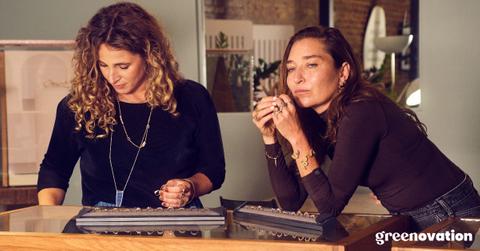Marilyn Monroe's infamous rendition of "Diamonds Are a Girl's Best Friend" made companies like Tiffany & Co., Cartier, Harry Winston, and more household names. But for all its glitz and glamour, the jewelry industry has an ugly truth: many of the gems used for fabulous rings or necklaces are not mined ethically or sustainably.
Thankfully, there are companies like Bario Neal, which was founded by Page Neal and Anna Bario, specifically with sustainability and ethical gemstones in mind. As part of our Greenovation series, Green Matters spoke to Page Neal, Lead Designer and co-founder of Bario Neal, about lab-grown diamonds, sustainability in the current jewelry market, and the challenges of recyclable materials. Read on for our Q&A with Page Neal.
This interview has been edited and condensed for length and clarity.
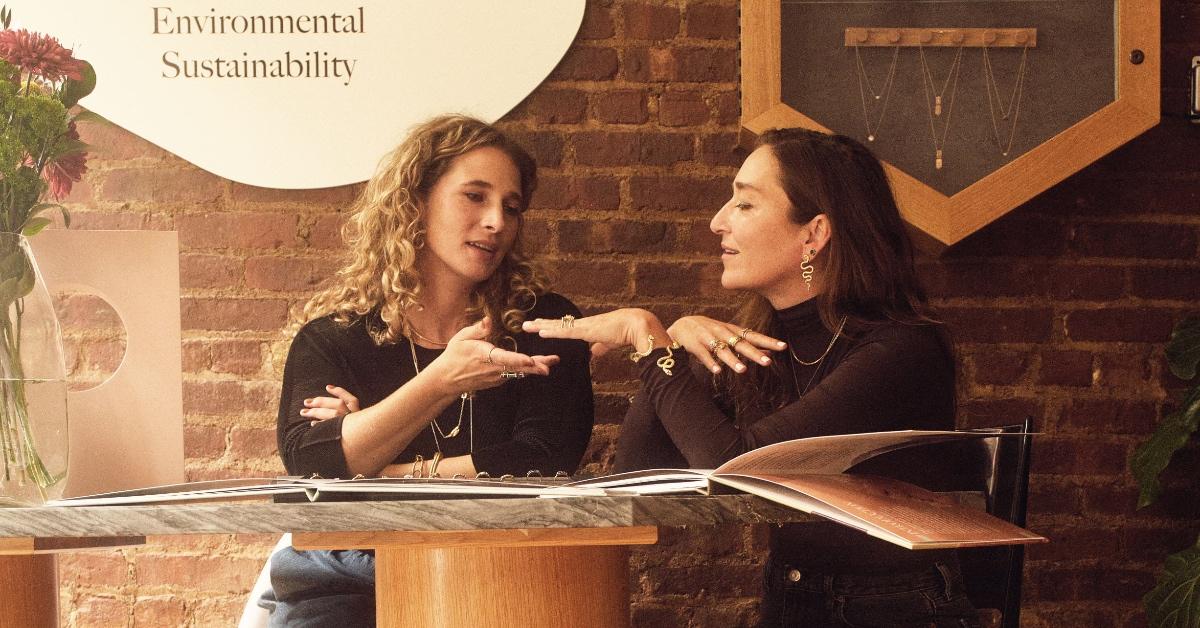
L-R: Anna Bario and Page Neal of Bario Neal.
GREEN MATTERS: Could you tell us a bit about where the idea for Bario Neal came from and when it was founded?
PAGE NEAL: Anna and I are friends from long time ago, we went to college together. Way back when in the year 2007, we had our own independent jewelry labels, and then we reconnected. We were both interested in the same environmental issues around the metals and gemstone mining. At that time, there was really no information available about it. We started Bario Neal as a research project, just trying to learn more about the material sourcing. Then we started reaching out to a lot of suppliers and decided to collaborate.
We got in touch people who invited us along to a major conference in D.C. We got to learn firsthand about the environmental issues and human rights violations and what the industry was doing to address it. That was very inspiring for us and we started our first collection that year. It was more fashion jewelry than what we do now, so we worked with 100 percent recycled materials. And at that time, it was really hard to get 100 percent recycled materials.
Then the recession of 2008 hit. That is when we decided to pivot more fine jewelry, and custom design. And honestly, it was a huge blessing to us, because we began working directly with consumers. They're spending a significant amount on a ring that's meaningful to them, so they're much more invested in the materials. It allowed us to devote more time to the research and the sourcing.
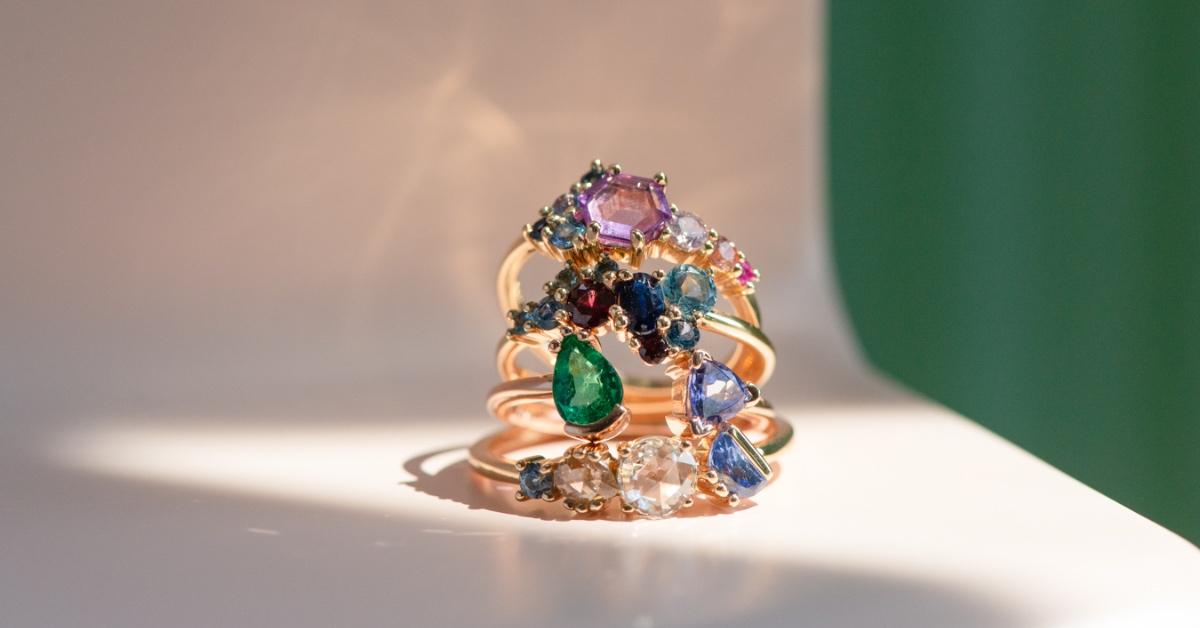
GM: Is there anything recently that surprised you about the jewelry industry? Has there been any progress you've observed?
PN: There are a lot of other jewelers who have access to sustainable sources because that has just become more and more of a consumer demand.
The narrative of what is sustainable or ethical has become really dominated by corporations. In my opinion, lab-grown diamonds are not the most sustainable option, but it's something that's really scalable to the Mejuris and the Brilliant Earths of the world. There's a level of greenwashing that has occurred.
GM: So you've already talked about how there was a lack of 100 percent recyclable resources when you started, have there been any other challenges that have come up?
PN: It's hard to get 100 percent recyclable material. A lot of refineries will say that they have recycled material, which is true, but it's just not 100 percent. We have relationships with refineries that we know use 100 percent recycled metals. In 2013, we were one of the first stakeholders of Fairmined Gold, which is now available in Fairmined Silver, which supports people and local economies which have been devastated traditionally from large scale mining.
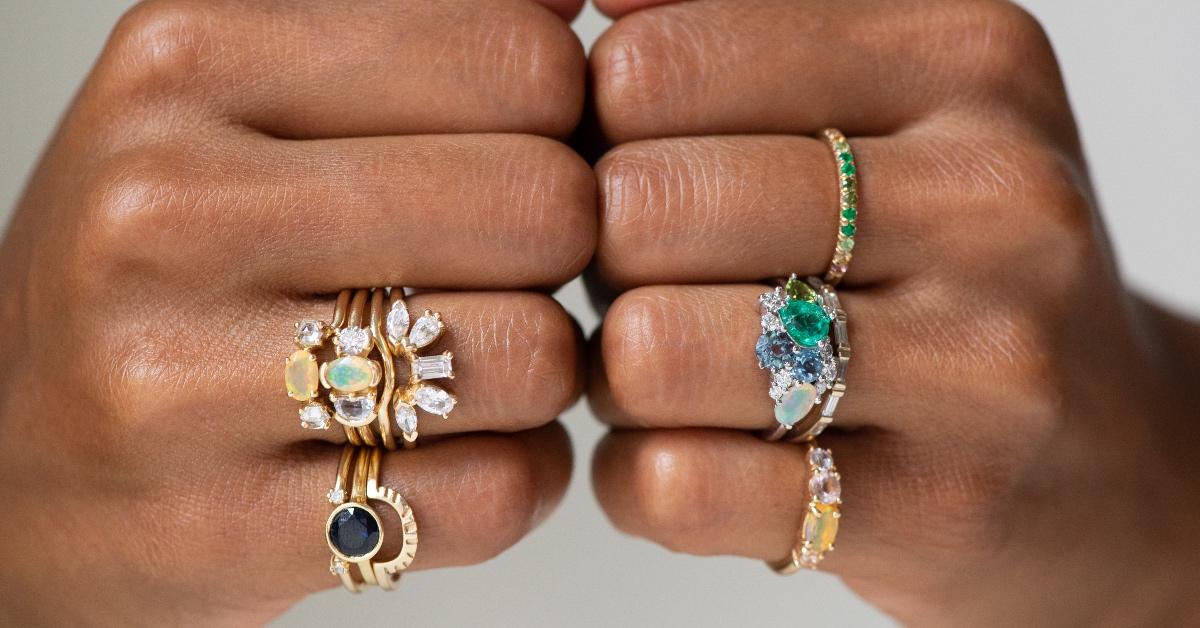
GM: What are some of the sustainable and ethical steps Bario Neal has been taking?
PN: We have a really strict protocol for how we vet suppliers, so we can make sure that they adhere to our sustainable and ethical standards. For lab-grown diamonds, we were very hesitant to work with them for a long time, because of their environmental footprint. We found a partner that makes them all in the U.S. and does carbon offset for the production of them. There's a responsibility to continue to educate consumers about the other options that Fairmined metal holds, and that recycled metals are just not the end all to the solution.
GM: What is the most rewarding part of running Bario Neal?
PN: Watching it grow has been very rewarding. We bought our own building, we have a whole production studio, we have a shop in Philly, we have a showroom in Brooklyn. We actually do make the work in our production studios. Seeing that build out and supporting a local manufacturing community is important and very satisfying.
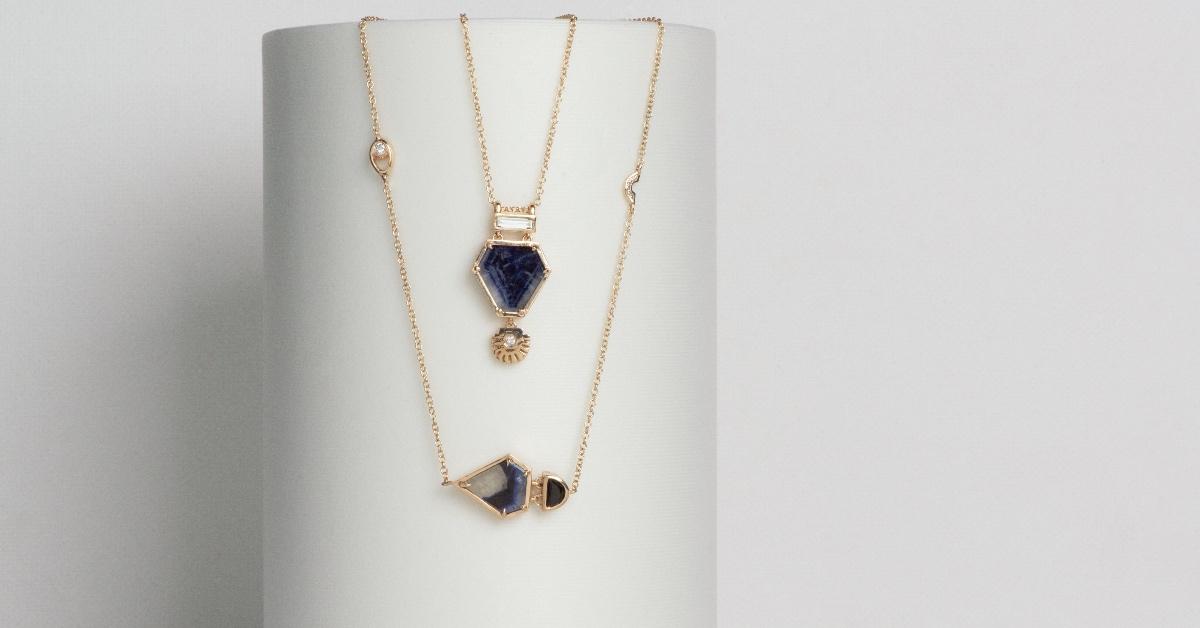
GM: What is your vision for the future of sustainability in the jewelry industry? How do you see Bario Neal contributing to that vision?
PN: Offering consumers an alternative to lab grown diamonds is really important. Sustainability just as a term doesn't totally encompass the ethics of business, and so much of the jewelry industry was built on exploiting certain parts of the world and people. So now to pivot to take the business or the investment out of those communities, to a lab-created diamond that has a pretty large environmental footprint, to me, doesn't address what historically has been done. How we can better those relationships and help those communities?
GM: What are some pieces or projects that Bario Neal is excited about?
PN: We just released a new collection or surface collection, which was really fun to work on and to design was more of a return to like the fashion jewelry that we originally started making. Because we always make our work to order, that gives us a lot of freedom and creativity and a voice where we don't have to bend to consumer demands so much. I love continuing to innovate, to meet new people and other like-minded businesses and to build our community.
“Greenovation” is a series from Green Matters that invites founders of companies that are not only disrupting industries, but also trying to change the planet for the better.

